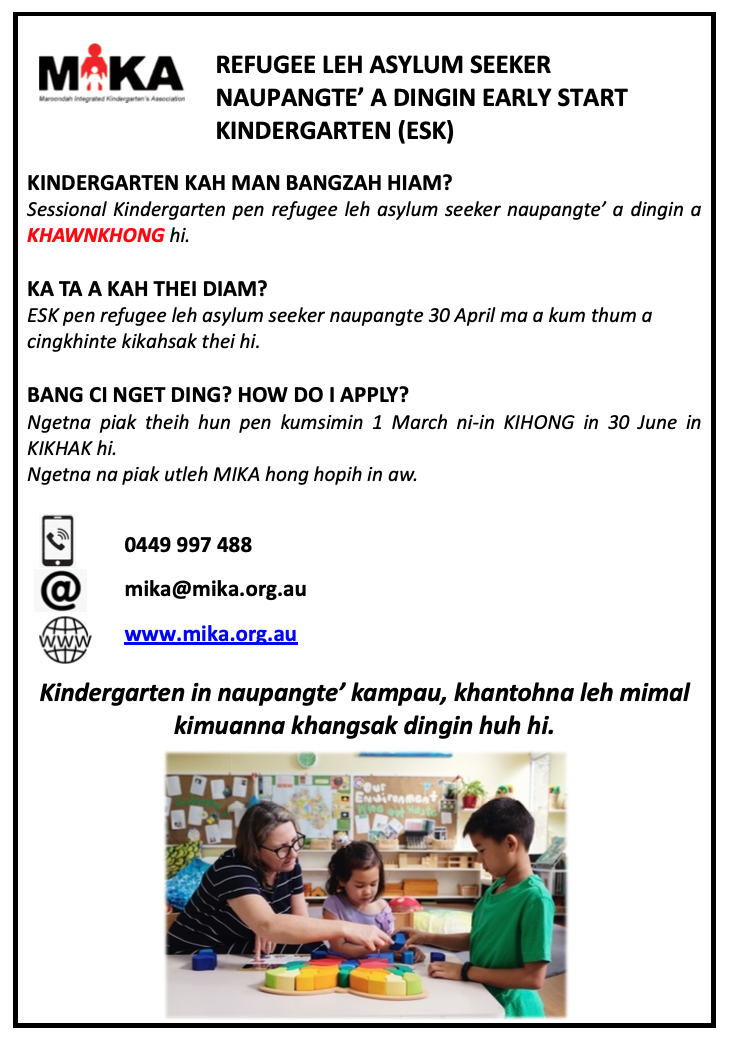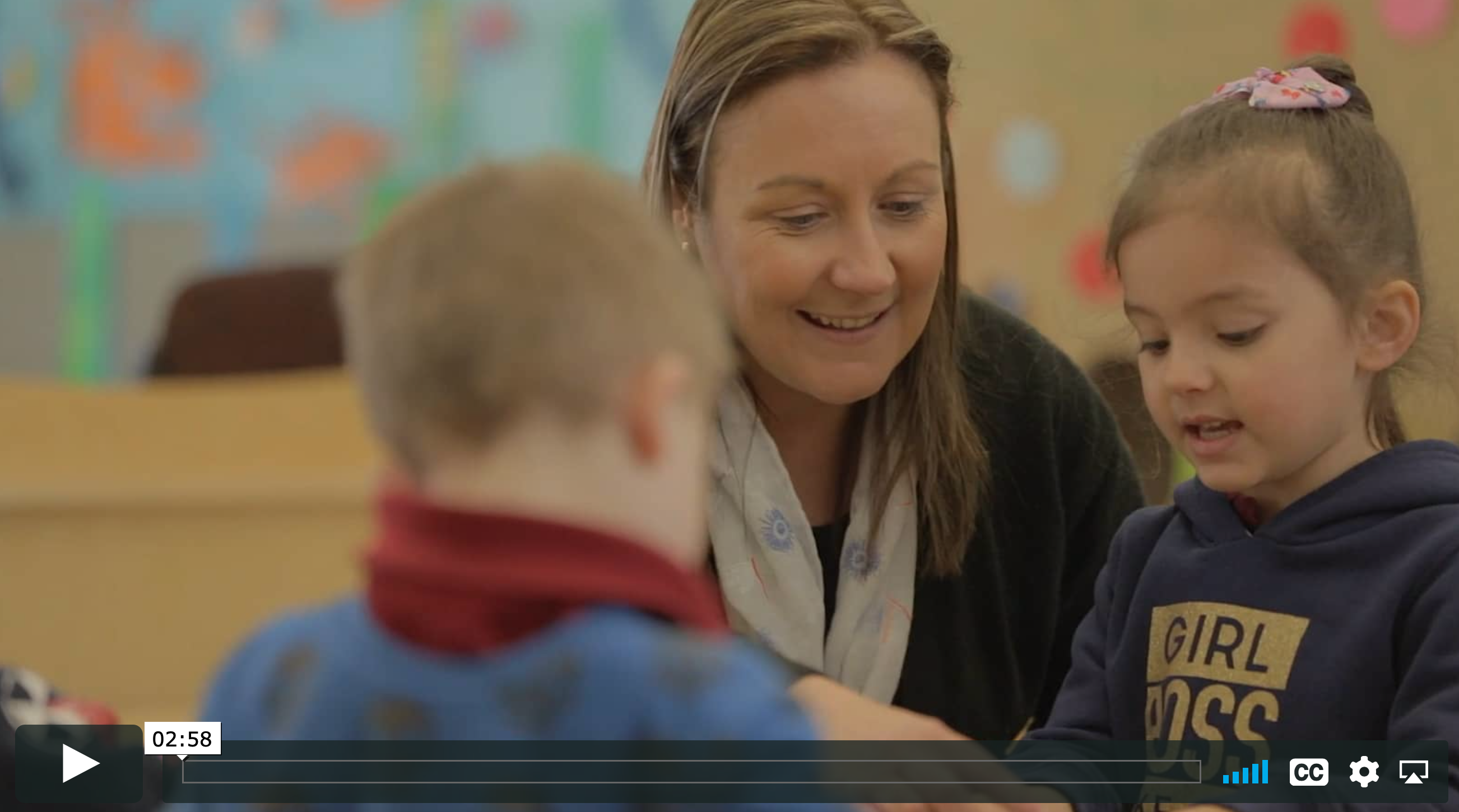EARLY START KINDERGARTEN
Early Start Kindergarten (ESK) gives eligible children 15 hours of free kindergarten per week, for two years before starting school.
Children who are age eligible for 3 year old can choose if they would like to access ESK funding through a 3 year old program (5-15 hours per week) or a 4 year old program (15 hours per week).
To be eligible, your child must be three by 30 April in the year they start kindergarten, and:
► identify as Aboriginal or Torres Strait Islander, or
► your family has had contact with Child Protection or Child FIRST, or
► Asylum Seeker or Refugee Children, child or parent holds:
- - Refugee visa (subclass 200)
- - In-country Special Humanitarian visa (subclass 201)
- - Global Special Humanitarian visa (subclass 202)
- - Emergency Rescue Visa (subclass 203)
- - Woman at Risk visa (subclass 204)
- - Humanitarian Stay visa (subclass 449)
- - Temporary Protection visa (subclass 785)
- - Temporary (Humanitarian Concern) visa (subclass 786)
- - Safe Haven Enterprise visa (subclass 790)
- - Protection visa (subclass 866)
- - Bridging visas for any of the above Refugee or Asylum Seeker visas
| FALAM | HAKHA | KAREN |
   |
| MIZO | ZOMI |
  |
WHY EARLY START KINDERGARTEN IS IMPORTANT
Early Start Kindergarten provides children access to a 15 hour per week kindergarten program for two years.
Accessing high quality early childhood education for two years has a substantial and positive impact on a child’s cognitive, emotional, and social skills (Centre for Education Statistics and Evaluation, 2018). Through play-based learning at kindergarten, your child will gain new or improved skills in a number of different areas, including:
► learning how to become an effective learner
► developing and extending their communication and language skills
► building self-confidence and social skills
► building understanding of identity and culture
► learning to be creative through arts, dance and music
► developing skills in literacy and numeracy.
Research shows that two years of kindergarten also has a bigger impact on children’s long term development and health compared with one year of kindergarten, which can lead to stronger academic outcomes at school (Fox and Geddes, 2016).


